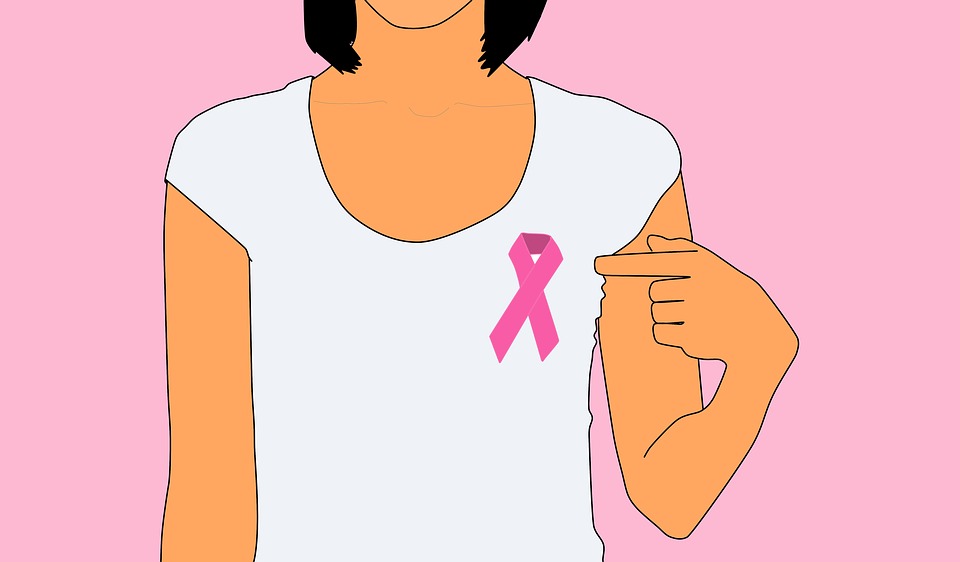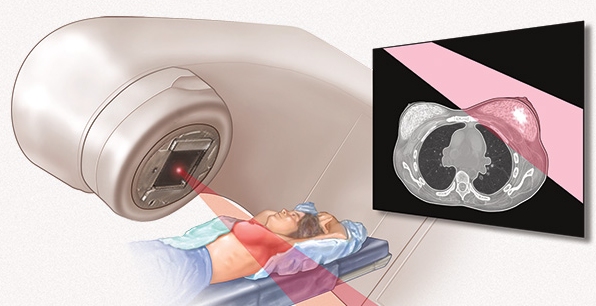What can I expect from radiation for breast cancer side effects
Effects of Radiation for Breast Cancer

For most women suffering from breast cancer, radiation is needed in addition to some other treatments to get rid of the cancer. The need for radiotherapy depends on your age, the surgery you had, or if the cancer had already spread to your lymph nodes or other parts of your body. Radiotherapy is a highly effective cancer treatment that uses high-energy rays to destroy cancer cells. There are 2 types of radiotherapy; external beam radiation and internal radiation. In this article, we will focus on the effects of the more common external beam radiation which uses radiation from a machine that is outside the body.

In this method, the radioactive rays have to go through healthy tissue to get to the cancer cells which can cause a number of radiation side effects for the patients. Some of these side effects are as follows;
1. Skin Changes
Every woman who has undergone external beam radiotherapy faces the risk of skin damage which may be permanent or temporary depending on factors such as the duration of treatment, the dose of radiotherapy, the skin type, among others. You will start noticing skin reactions around 10 days after you start your treatment. In some cases, skin reactions can happen much later in treatment or even after treatment is over. Below are some of the common skin reactions:
a. Your skin feels tender, itchy, dry and sore.
b. Your skin becomes darker or pinker over time.
c. Your skin peels or flakes as treatment carries on.
d. Your skin becomes red or sore and may become moist or blister.
If you experience any of the above skin reactions any time after your radiotherapy treatment, notify your treatment team so that they can keep an eye on your treatment and advise on the recommendable way to take care of your skin.
2. Swelling of the Breast
As you receive treatment, your breasts or chest area may sometimes appear swollen or feel really uncomfortable. In most cases, this swelling settles within a few weeks after the treatment. If the swelling doesn’t go away, notify your breast care nurse or oncologist so that they can assess the problem, give you a remedy or refer you to a lymphedema specialist if need be.
3. Pain

Radiation burns may cause soreness in your treated breast during and even after treatment. Many women may have twinges, aches or sharp pains in the chest area. Although it is usually mild, the pain may continue for months and even years in some rare cases. You may also feel uncomfortable or experience stiffness around the shoulder and chest area. The skin may also peel further making the area tender and more sensitive. Any pain should be reported to your provider immediately so that they can provide the appropriate remedy.
4. Fatigue

For most women, radiotherapy does not make them feel sick but may make them feel very tired during and several weeks after treatment. Also, frequent trips to the hospital and having to deal with your daily tasks or jobs during the treatment period may take its toll on many patients. The situation is even worse for women who have already had chemotherapy before starting the radiotherapy. It is important for every patient to know their limits and work with the doctor to come up with a treatment program that is not too much to handle.
5. Changes in breast shape, size, and color
Radiotherapy may cause some women’s breasts to become firmer and smaller. This is caused by the inability to get an even dose of radiation treatment over the entire area being treated and also because breasts are not regular shapes.
6. Lymphedema
Radiotherapy to lymph nodes in your underarm area may lead to the collection of fluid in the arm, hand, fingers, back, or chest causing it to swell. This condition is known as lymphedema and is mainly caused by damage to the lymphatic system caused by radiotherapy. Being a long-term condition, lymphedema normally does not go away completely once developed, but it can be controlled. Contact your breast care nurse if your arm, breast or chest area swell or feels heavy and uncomfortable after radiotherapy.
7. Hair loss in the armpits
Radiotherapy to the armpits area may make your underarm air on that side fall out. This usually happens about three weeks after radiotherapy and may take a while to grow back. For some women, it never grows back at all.
Sources
1. https://www.cancer.org
2. https://www.breastcancercare.org.uk/information-support/facing-breast-cancer/going-through-breast-cancer-treatment/side-effects/side
3. https://ww5.komen.org/BreastCancer/SideEffectsofRadiationTherapy.html

For most women suffering from breast cancer, radiation is needed in addition to some other treatments to get rid of the cancer. The need for radiotherapy depends on your age, the surgery you had, or if the cancer had already spread to your lymph nodes or other parts of your body. Radiotherapy is a highly effective cancer treatment that uses high-energy rays to destroy cancer cells. There are 2 types of radiotherapy; external beam radiation and internal radiation. In this article, we will focus on the effects of the more common external beam radiation which uses radiation from a machine that is outside the body.

In this method, the radioactive rays have to go through healthy tissue to get to the cancer cells which can cause a number of radiation side effects for the patients. Some of these side effects are as follows;
1. Skin Changes
Every woman who has undergone external beam radiotherapy faces the risk of skin damage which may be permanent or temporary depending on factors such as the duration of treatment, the dose of radiotherapy, the skin type, among others. You will start noticing skin reactions around 10 days after you start your treatment. In some cases, skin reactions can happen much later in treatment or even after treatment is over. Below are some of the common skin reactions:
a. Your skin feels tender, itchy, dry and sore.
b. Your skin becomes darker or pinker over time.
c. Your skin peels or flakes as treatment carries on.
d. Your skin becomes red or sore and may become moist or blister.
If you experience any of the above skin reactions any time after your radiotherapy treatment, notify your treatment team so that they can keep an eye on your treatment and advise on the recommendable way to take care of your skin.
2. Swelling of the Breast
As you receive treatment, your breasts or chest area may sometimes appear swollen or feel really uncomfortable. In most cases, this swelling settles within a few weeks after the treatment. If the swelling doesn’t go away, notify your breast care nurse or oncologist so that they can assess the problem, give you a remedy or refer you to a lymphedema specialist if need be.
3. Pain

Radiation burns may cause soreness in your treated breast during and even after treatment. Many women may have twinges, aches or sharp pains in the chest area. Although it is usually mild, the pain may continue for months and even years in some rare cases. You may also feel uncomfortable or experience stiffness around the shoulder and chest area. The skin may also peel further making the area tender and more sensitive. Any pain should be reported to your provider immediately so that they can provide the appropriate remedy.
4. Fatigue

For most women, radiotherapy does not make them feel sick but may make them feel very tired during and several weeks after treatment. Also, frequent trips to the hospital and having to deal with your daily tasks or jobs during the treatment period may take its toll on many patients. The situation is even worse for women who have already had chemotherapy before starting the radiotherapy. It is important for every patient to know their limits and work with the doctor to come up with a treatment program that is not too much to handle.
5. Changes in breast shape, size, and color
Radiotherapy may cause some women’s breasts to become firmer and smaller. This is caused by the inability to get an even dose of radiation treatment over the entire area being treated and also because breasts are not regular shapes.
6. Lymphedema
Radiotherapy to lymph nodes in your underarm area may lead to the collection of fluid in the arm, hand, fingers, back, or chest causing it to swell. This condition is known as lymphedema and is mainly caused by damage to the lymphatic system caused by radiotherapy. Being a long-term condition, lymphedema normally does not go away completely once developed, but it can be controlled. Contact your breast care nurse if your arm, breast or chest area swell or feels heavy and uncomfortable after radiotherapy.
7. Hair loss in the armpits
Radiotherapy to the armpits area may make your underarm air on that side fall out. This usually happens about three weeks after radiotherapy and may take a while to grow back. For some women, it never grows back at all.
Sources
1. https://www.cancer.org
2. https://www.breastcancercare.org.uk/information-support/facing-breast-cancer/going-through-breast-cancer-treatment/side-effects/side
3. https://ww5.komen.org/BreastCancer/SideEffectsofRadiationTherapy.html

